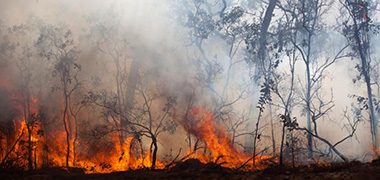
How do I become a earth scientist?
Bachelor of Science (Honours) (Earth Science)
- There are no mandated entry requirements.


Bachelor of Environmental Science
- There are no mandated entry requirements.








Bachelor of Science (Earth Science)
- There are no mandated entry requirements.








Bachelor of Science (Environmental Science)
- There are no mandated entry requirements.








Bachelor of Science (Geology)
- There are no mandated entry requirements.


Related occupations
Geophysicist
A Geophysicist analyses Earth’s physical properties using seismic and magnetic data to locate resources, create models, and support extraction.
Hydrologist
A Hydrologist analyses water movement and quality to manage resources, conduct flood modelling, and ensure sustainable and regulatory compliance.
Geologist
A Geologist studies the earth's composition to assess its suitability for industries like mining and engineering, conducting surveys and analyses.
Hydrogeologist
A Hydrogeologist studies groundwater movement and quality, assessing water resources and collaborating on sustainable management and contamination mitigation.
Geochemist
A Geochemist studies the chemical properties of rocks and minerals to enhance environmental quality, locate fossil fuels, and advise on conservation practices.
Palaeontologist
A Palaeontologist examines fossils to study Earth's history and evolutionary patterns, conducting fieldwork and collaborating with other scientists.
Geoscientist
A Geoscientist studies the Earth's physical aspects, analysing data on its structure and processes to aid in resource management and environmental protection.
Physical Scientist
Physical Scientists study natural phenomena, conduct experiments, analyse data, and develop theories to advance scientific knowledge and technology.
GIS Specialist
A GIS Specialist analyses spatial data to create maps and models, supporting decision-making in fields like urban planning and environmental management.
Seismologist
A Seismologist studies earthquakes and seismic waves, analysing data to assess risks and enhance disaster preparedness and public safety.
Environmental Science Scientist
An Environmental Science Scientist researches and addresses environmental issues, developing solutions to protect ecosystems and promote sustainability.
Courses by location
Further reading


Choosing a security licence course in Australia: A step-by-step guide for jobseekers
10th November 2023
